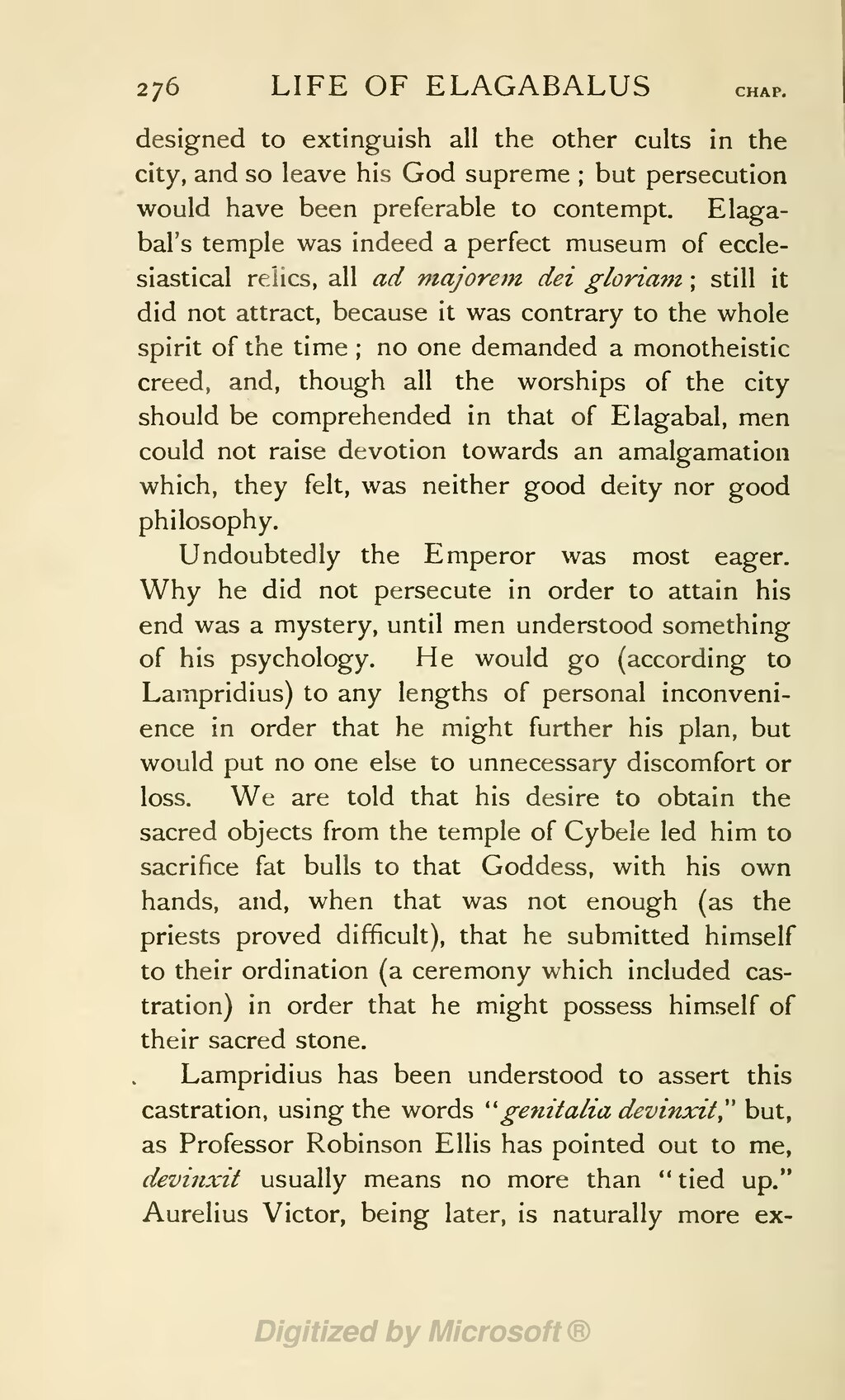designed to extinguish all the other cults in the city, and so leave his God supreme; but persecution would have been preferable to contempt. Elagabal's temple was indeed a perfect museum of ecclesiastical relics, all ad majorem dei gloriam; still it did not attract, because it was contrary to the whole spirit of the time; no one demanded a monotheistic creed, and, though all the worships of the city should be comprehended in that of Elagabal, men could not raise devotion towards an amalgamation which, they felt, was neither good deity nor good philosophy.
Undoubtedly the Emperor was most eager. Why he did not persecute in order to attain his end was a mystery, until men understood something of his psychology. He would (according to Lampridius) go to any lengths of personal inconvenience in order that he might further his plan, but would put no one else to unnecessary discomfort or loss. We are told that his desire to obtain the sacred objects from the temple of Cybele led him to sacrifice fat bulls to the Goddess, with his own hands, and, when that was not enough (as the priests proved difficult), that he submitted himself to their ordination (a ceremony which included castration) in order that he might possess himself of their sacred stone.
Lampridius has been understood to assert this castration, using the words "genitalia devinxit," but, as Professor Robinson Ellis has pointed out to me, "devinxit" usually means no more than "tied up." Aurelius Victor, being later, is naturally more ex-
